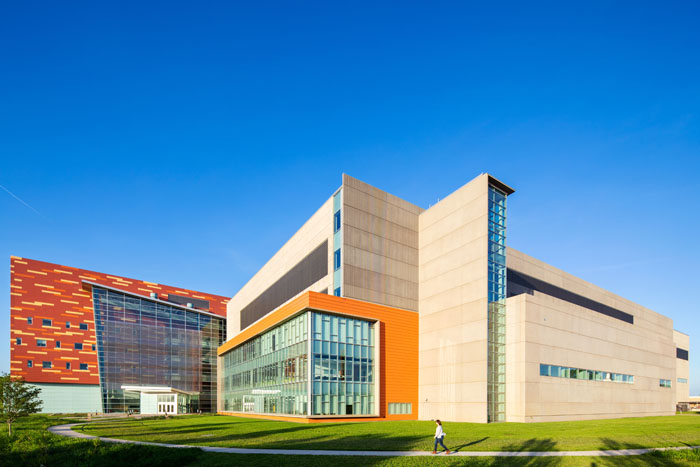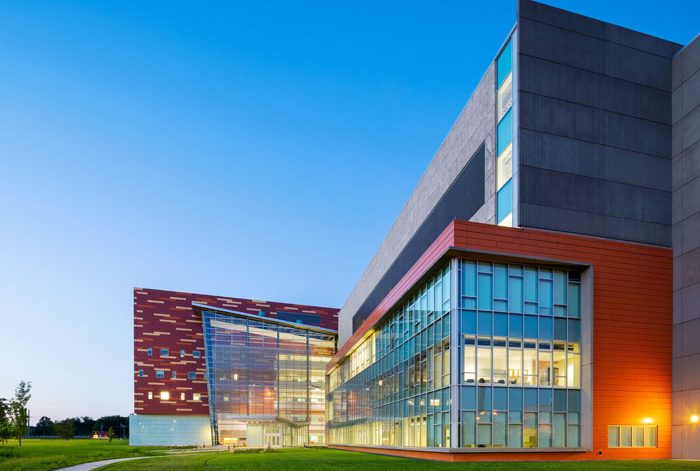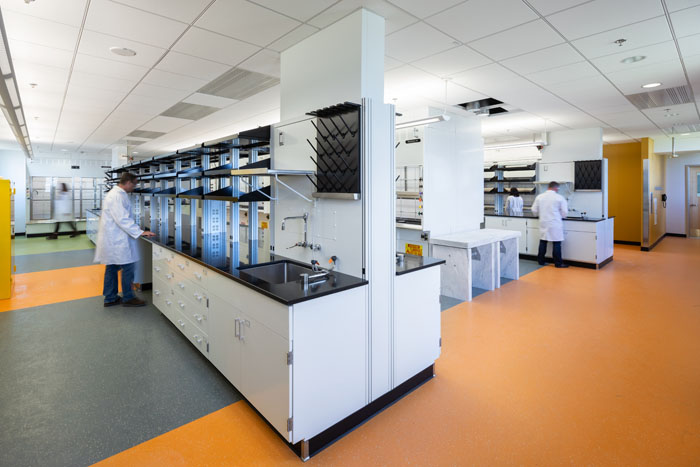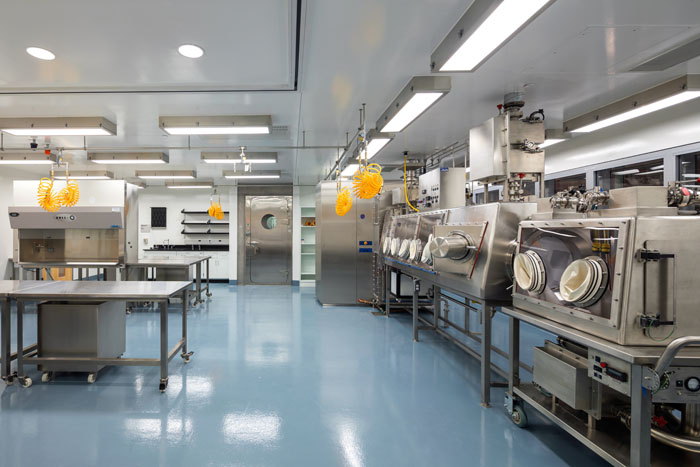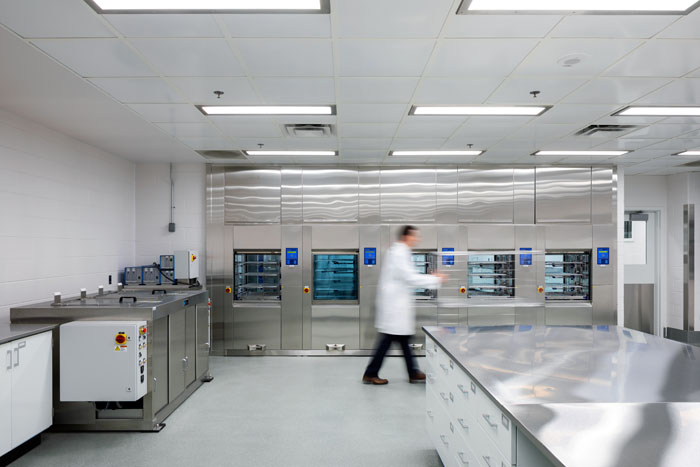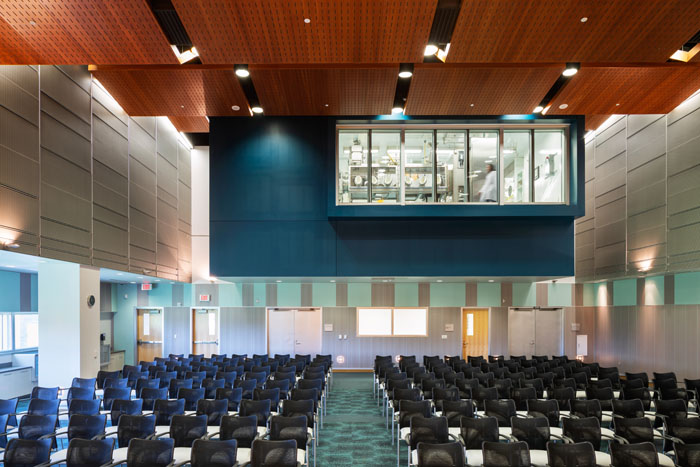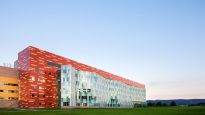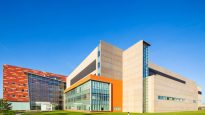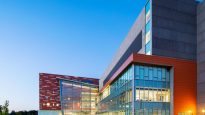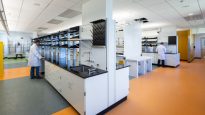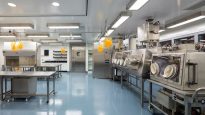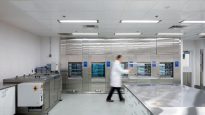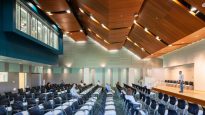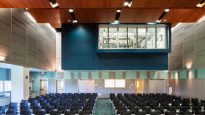U.S. Army Medical Research Institute of Infectious Diseases (USAMRIID) Replacement Project
USAMRIID
Fort Detrick, Maryland
Constructed by Manhattan/Torcon, A Joint Venture, the U.S. Army Medical Research Institute of Infectious Diseases (USAMRIID) replacement facility at Fort Detrick, Maryland, is among the largest, most complex biocontainment facilities in the world.
The six-story, 835,000-square-foot research facility contains the largest block of state-of-the-art biosafety level (BSL) 3 and 4 laboratory suites in the U.S. Department of Defense. The biosafety laboratory spaces employ many technical enhancements, allowing researchers to work together safely and effectively to respond quickly to critical emerging biological threats, including the world’s deadliest pathogens such as Ebola, for which there is no vaccine.
The building supports research for agents that are classified as A, B, and C, meaning the specimens range from anthrax to influenza. To be able to meet the diverse technology needs of these communicable diseases, the facility contains an assortment of laboratories, support spaces, and general office areas. The building includes areas designed for headquarters and administrative offices, research offices, BSL-2 standard laboratories, BSL-3e laboratories, BSL-4 laboratories, U.S. Army Veterinary Medicine ABSL-2, ABSL-3e, and ABSL-4 animal housing (ABSL stands for Animal Bio-Safety Lab).
Nearly all of the building is dedicated and designed to support the BSL-4, BSL-3e, and BSL-2 laboratories. BSL-2 lab standards are more common and are used in labs that research human, non-deadly diseases (like hepatitis B). The BSL-4 labs are more challenging, from the construction perspective, because the labs are designed to contain highly infectious human diseases, which, if released into the atmosphere, are life-threatening (i.e., Ebola). Since September 11, the demand for completed laboratories with these sophisticated capabilities has exponentially increased. Although there is a great demand for advanced labs, there are only about 40 BSL-4 laboratories worldwide, with 13 of those located within the United States. USAMRIID maintains the largest BSL-4 capacity in the United States, with a net containment area of 17,429 square feet.
USAMRIID is U.S. Green Building Council (USGBC) Leadership in Energy, and Environmental Design (LEED®) registered seeking Silver certification. The project architect is Joint Venture Partners CUH2A – a subsidiary of Omaha, Nebraska-based HDR, Inc. and Winnipeg, Manitoba-based Smith Carter.

